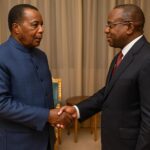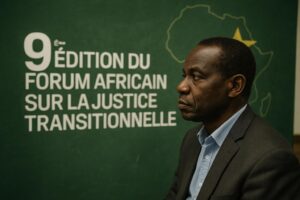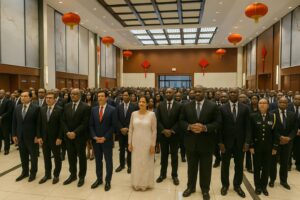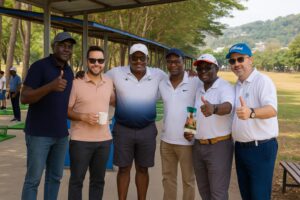Chan 2024 Group-Stage Exit and Reactions
When the final whistle echoed in Abidjan on 19 August, Congo’s locally based Red Devils left the pitch 0–2 down to Nigeria, their Chan 2024 journey over. Two points in three matches condemned the team to a second straight first-round exit (CAF match report).
Pre-match arithmetic had been simple yet unforgiving: victory by two clear goals would have lifted Congo above Sudan and Senegal. Anas Yusuf’s angled strike on 56 minutes, followed by Alimi’s stoppage-time conversion, erased that scenario and underscored how slim margins dominate continental knockout gateways.
The result triggered predictable scrutiny of coach Isaac Ngata’s preparation cycle. Critics cited truncated domestic fixtures, limited international friendlies and administrative delays in bonus disbursement. Yet officials emphasised the squad’s resilience, noting that Congo avoided defeat until the final match and conceded only thrice overall.
Football, Identity and Soft Power
Beyond sport, Brazzaville views football as a vector of national cohesion and diplomatic reach. The government’s 2022–2026 Sports and Youth Strategy explicitly lists continental tournaments as platforms for projecting a modern Congolese identity, complementary to cultural diplomacy initiatives at UNESCO and the Paris Peace Forum (Ministry communiqué).
Chan’s home-based player rule intensifies that objective. Unlike Afcon, the event tests each nation’s domestic league depth. Success therefore signals governance quality, talent retention and infrastructure provision—metrics closely watched by investors evaluating Central African markets, according to an EY advisory note circulated during the tournament.
Infrastructure and League Modernisation
Since 2019 the Ministry of Sport has rehabilitated the Alphonse Massamba-Debat Stadium, upgraded regional training centres in Pointe-Noire and Ouesso, and launched a scholarship scheme with Morocco’s Mohammed VI Academy. Budget lines grew by eight percent in 2023 despite broader fiscal consolidation, figures from the finance ministry indicate.
In spite of that outlay, the domestic Ligue 1 has endured calendar disruptions stemming from the pandemic, fluctuating broadcast revenues and club licensing compliance issues flagged by CAF. Those variables translate into limited match rhythm for players who ultimately confront highly drilled teams from North and West Africa.
Centre-back Ndzinga and winger Prince Obongo, both courted by European scouts in Abidjan, personify the talent pipeline’s mixed blessings. Early overseas departures boost individual careers yet erode domestic spectacle. Balancing export income with league competitiveness remains, as analyst Jean-Luc Malonga argues, “a policy tightrope” (RFI interview).
Regional Integration through Sport
Regionally, Congo’s performance matters beyond bragging rights. The Economic Community of Central African States is developing a joint sports calendar to reinforce people-to-people links envisioned in the 2025 Libreville Declaration. A credible Chan run would have strengthened Brazzaville’s convening authority during forthcoming ECCAS cultural summits.
In parallel, security cooperation exercises with Nigeria and Cameroon often include youth sport clinics aimed at countering violent extremism narratives along riverine borders. Analysts note that high-visibility fixtures amplify those soft security dividends by normalising cross-border fan travel and media coverage, thereby facilitating trust-building among local communities.
Technical director Barthélémy Ngatsono, debriefing reporters, emphasised recovery management, set-piece precision and psychological conditioning as immediate lessons. The federation has scheduled a November workshop with French Ligue 1 performance coaches and sports psychologists from Dakar’s Cheikh Anta Diop University to align methodologies across club and national structures.
Stakeholders also eyed fresh financing avenues. A memorandum of understanding signed in June with the African Development Bank earmarks concessional loans for community stadium lighting, contingent on environmental safeguards. Private telecommunications firms, eager for 5G rollout visibility, are negotiating shirt sponsorships that could double current revenue streams.
From Lessons to Roadmap 2026
At grassroots level, the National Olympic Committee is expanding school tournaments to thirteen departments, piloting gender-inclusive rules and digital scouting tools supplied by a Congolese start-up. Early indicators show a 22 percent rise in licensed under-15 players compared with 2021, according to data presented in Brazzaville last month.
Future infrastructure must also confront climate resilience. The 2023 floods that temporarily closed Kombo Sports Centre highlighted vulnerability. Engineers now incorporate elevated drainage, solar micro-grids and early-warning sensors, aligning with Congo’s Nationally Determined Contributions under the Paris Agreement, a synergy welcomed by international partners monitoring green financing principles.
Chan 2026 qualifying begins next year, and calendars are already under discussion with CAF to avoid overlap with World Cup preliminaries. Sports Minister Hugues Ngouélondélé told state radio that competitive friendlies against Rwanda and Benin are pencilled for March, alongside a domestic league window adjusted for player recovery.
While disappointment lingers, the broader policy landscape suggests incremental progress rather than structural failure. Diplomats assessing Congo’s stability toolbox increasingly list sport alongside energy and forestry. Capitalising on Chan 2024’s hard lessons could therefore reinforce both pitch performance and the nation’s carefully curated diplomatic profile.





















